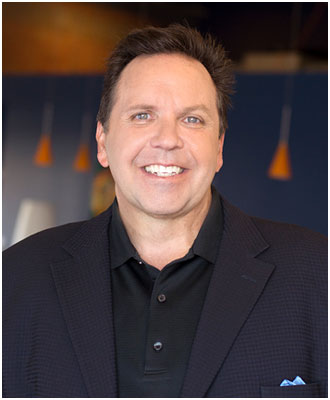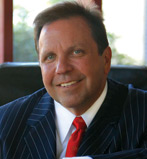Tony La Russa’s Game Plan
Retired Major League manager Tony La Russa proves that in baseball (as in business), preparation and personal relationships give you a winning edge.
Tony La Russa is considered among the best in his business. Yet nearly half the time he led his organizations into competition, they were defeated—2,728 wins, 2,365 losses. That’s one of the great oddities of baseball: Success is relative. A hitter who fails 70 percent of the time at the plate is a potential member of the National Baseball Hall of Fame, and many World Championship teams lose more than 70 games during their title-winning seasons.
In that quirky world, the reclusive La Russa’s 33 years as a Major League manager have all but guaranteed him a place in the Baseball Hall of Fame. He was named manager of the year four times and won three World Series Championships, including the St. Louis Cardinals’ 2011 title. Then, with acclaim for that achievement still rolling in, La Russa stunned the sports world by retiring.
“I decided in June or July [2011] that this would be it,” La Russa told SUCCESS. “Then we got hot, and it made no sense for me to say anything. Then we won Game 7 of the World Series. I thought it was getting harder and harder not to tell everyone what I was planning. You never want to cheat anybody, and waiting to make the announcement would have only cheated the owners of opportunities to pick the next manager. It felt right.”
True to his goal, he left his players and fans feeling as if he had given them the world as his final act, cheating them of nothing.
Playing Days and Law School
La Russa’s love of the game began as a child in Tampa, Fla. But his playing days and abilities had their limits. If you don’t remember any of his at-bats from his playing career—much of it in the minor leagues—that’s OK. La Russa says they weren’t all that memorable. (He holds one noteworthy statistic: He was the first 18-year-old to start in the majors at shortstop.)
“As a player, the only thing I felt good about was that I played 16 years. I got beat up and injured a lot, especially the first six years,” La Russa recalled. “To this day, I don’t think I’m that tough a guy. I’m surprised I kept playing. But I loved the game. That’s why I just kept coming back.”
So he planned early for another career… as a lawyer, finishing his law degree from Florida State University in 1978. His playing days were over then, but baseball wasn’t out of his system. So he took a minor league managing job to convince himself he had gone as far as he could in baseball.
His law studies actually came in handy, La Russa said, by teaching him the importance of preparation—the difference between the great ones and the one-hit wonders.
“The legal education is great for whatever you are doing. Good lawyers love a good fight. They love that they have to put their heart into the job to be successful. So do great ballplayers. The reason our teams have won a lot of games is because we loved to compete. At the end, you can prepare and go out there and throw the ball around and not sink your heart and guts into it and not win. Our teams over the years have been built like this one [2011 Cardinals]. They had guts, loved a good fight and were prepared. That’s a good recipe for success.”
Leadership Practices
Great baseball managers, like company CEOs, must harness employees’ competitive energy, La Russa said. He succeeded in Chicago, St. Louis and Oakland, Calif., by gaining the respect of his clubs through meticulous preparation for every game and getting to know each player personally. La Russa also knew how to govern himself in the face of adversity. No matter what was going on with the team or with himself, La Russa masked his emotions so issues never trickled down to the players.
The next step, La Russa said, was hiring coaches who shared his beliefs and could bring the same focus to the game. “My job was to keep our whole staff at a level 10,” La Russa explained. “Some days you feel like a six because you are distracted; you need to get to 10. Players have a tough time because sometimes what is dragging them down is physical, but coaches need to get to 10.… [I gave] the best I had every day.”
That “level 10” philosophy, La Russa said, played into the next-most-important part of his job: handling players. “There is a certain amount of stuff you learn and keep learning, but most of it is within you,” La Russa said. “I think you have to adapt, but at the same time there are some core things about how you represent an organization and compete. They pay us to play another team and score: You never compromise that.”
La Russa took a very personal approach. If a player said he was “distracted by free-agent status and playing time, [I’d say,] ‘Hey, this is where you fit.’ Personalize it, show them that you care for them, and you try to earn their respect and trust. It is real, basic old-time values.”
Players agree, saying what they remember most about La Russa is how well he treated them. Pitcher Dave Stewart was Most Valuable Player in the 1989 World Series on La Russa’s watch. Stewart told the Los Angeles Times that La Russa’s managing style and ability to relate to all players was what made him so successful and well-liked in the dugout. “What made him really, really good were his preparation and the intensity he brought to the game,” Stewart said. “What he brought to the dugout would manifest itself in each and every player.”
Those personal relationships are much easier if you can employ people who buy into your message, La Russa said.
Albert Pujols, one of the game’s best hitters, played for La Russa in St. Louis for more than a decade. Several times during their run in St. Louis, as the team struggled, Pujols could have played the “I deserve a better team” card, but he believed in his skipper and because of it, the other players followed suit.
“He was a great competitor and teammate,” La Russa said of Pujols, who signed with the Los Angeles Angels shortly after La Russa retired. “Watch Albert. He’s in the dugout and watch how animated he was throughout the game. That’s how he was for 11 years.… Albert sits on the top step. He’s right there in every pitch encouraging his teammates. They will miss that a lot.”
The admiration is mutual, with Pujols releasing a statement in response to La Russa’s retirement: “He’s been like a father to me and in my opinion, is one of the greatest managers in the history of the game. I’ve been blessed to be able to learn from Tony for the past 11 years, and I wish him well on his retirement.”
What’s Next
Spring training 2012 was the first time in almost a half-century that Tony La Russa, 67, didn’t don a team uniform and head to Florida or Arizona for work. Although he’s now focused on family and his Animal Rescue Foundation charity, La Russa isn’t done with baseball completely. “I do know baseball, and there’s a good chance I’ll be doing something with a team or the league someday. If I wasn’t in baseball, I would miss it.”
He also might do something in the business world. “I’d love to start a company.… I’d open a bookstore tomorrow,” La Russa chuckled. “They tell me, ‘You will be broke, too.’ I don’t know the business, but I’d have fun sharing good books with others.”
And what if the Baseball Hall of Fame beckons someday as sports insiders predict? “I think when a manager gets into the Hall, it really is a great player recognition, because the players get you there,” La Russa said.
He isn’t so sure it will happen, saying, “I don’t think winning a World Series or even two is a credential.” But one of his peers sees the Hall as a lock for La Russa.
“I think you can make a case for him as the best of all time. Absolutely,” Detroit manager Jim Leyland said after the 2011 World Series.
Tags: Success Magazine, Writing






